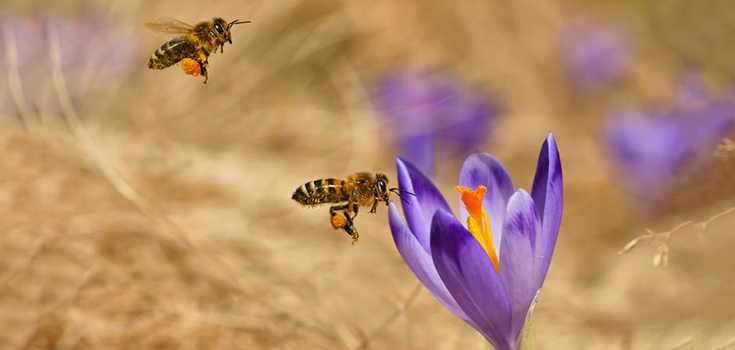
EPA Finally Comes Out Against Neonicotinoids: Bayer Chemical Under Fire For Risk To Bees
There is an old saying in the South of the United States: “Even a blind pig finds an acorn every now and then.”
It refers of course to the occasional good fortune that befalls even the most hapless and incompetent, and it’s a phrase that is applicable to the news out of the EPA today.
The agency says that a pesticide widely sprayed on grains, vegetables, fruit, and other crops across the United States is threatening honeybees.
Cue up the sarcastic slow clap by environmentalists.
Of course anyone who is concerned with the radical idea that there may well be unintended consequences to the delicate balance of the ecosphere if we continue to dump chemicals on everything without really knowing what they might do knew that already, but whatever. Better late than never.
The news concerns a Bayer product, imidacloprid, which is a nicotine-imitating chemical also known as a neonicotinoid. The EPA revealed that their testing shows that imidacloprid is highly dangerous to honeybees and hives on some crops, though not others.
This is the first such study in a series of comprehensive evaluations of how neonicotinoids affect bees, the findings of which represent the first EPA acknowledgement that bees are indeed in danger from these dangerous chemicals. Bees are vital to human life in many more ways than just as providers of honey. As much as a third of our diet comes from insect-pollinated plants, with the humble honeybee shouldering most of that burden: they are responsible for more than 80 percent of that pollination.
In a statement, top chemical safety official at the EPA Jim Jones said: “EPA is committed not only to protecting bees and reversing bee loss, but for the first time assessing the health of the colony for the neonicotinoid pesticides.”
And as welcome as the news is for environmentalists, it is also being met with a little exasperation. There has been an ongoing fight to outright ban neonicotinoids for some time, as they are known to affect the nervous system of bees and thought to be contributing to hive population declines.
But the EPA assessment showed that when sprayed on citrus trees and cotton to control pest insects, imidacloprid threatens the health of honeybees and their colonies. They also showed that the chemical can wind up in the plants’ nectar. The tests did not reveal the same level of threat when the substance was sprayed on crops like corn and leafy vegetables, a finding the chemical companies seized upon with the desperation of a drowning man reaching for a life preserver.
Bayer Cropscience, creator of the substance said in a statement that the assessment: “…appears to overestimate the potential for harmful exposures in certain crops, such as citrus and cotton, while ignoring the important benefits these products provide and management practices to protect bees.”
Still, if nothing else one has to give the EPA at least a grudging pat on the back for taking things in the right direction. Let’s keep the pressure on and get rid of these dangerous chemicals altogether!
http://naturalsociety.com/epa-bayer-pesticide-imidacloprid-harmful-bees-certain-crops-6715/
